Lost wax casting is a process that uses a wax pattern to produce a ceramic mold for making a product or part design. The process is also called precision casting because of its high accuracy and precise tolerance in recreating parts. Read More…
For over 30 years, we have provided metal forged products for a wide variety of industries, including the aerospace, military, food service, medical, and automotive industries. Our customers know they can trust our forgings for quality and affordability. We will never try to make you pay more than you should for our products. Contact us by phone or email to find out more!
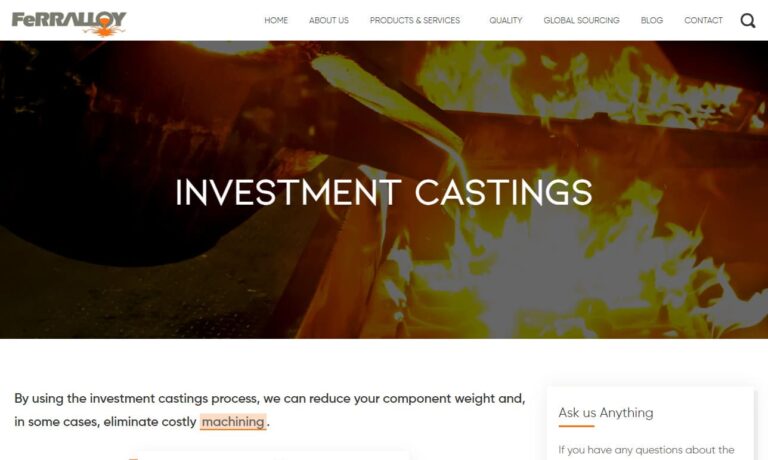
At Impro, we have top-of-the-line equipment for the most demanding investment casting requirements. Our equipment and automation process controls allow us to work with different ferrous and non-ferrous alloys, and maintain consistent and repeatable tolerances as close as ± 0.1 mm. Our investment castings are dimensionally and geometrically complex and produced to net shape, minimizing the need...
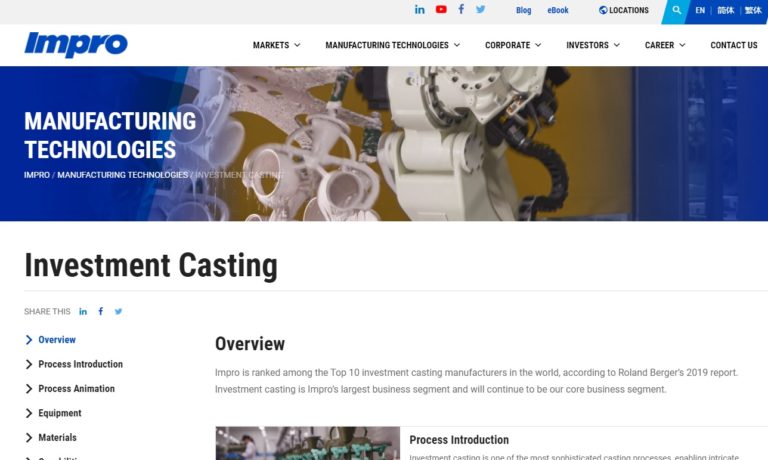
Founded in 2011, Lodestar Quality LLC is a knowledge-driven custom manufacturing solutions provider that provides manufacturers of products a full range of services from innovative design and engineering, to sourcing and production using best in class quality control methods in a cost efficient manner. Focus areas include fabrications, castings, machining and forging, plastic products, and...
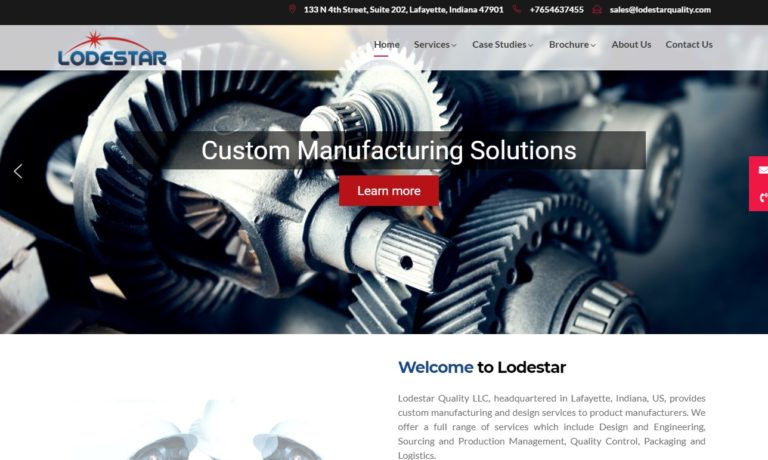
Since 1944 we have been driven to remain a cut above the competition in investment castings and everything we do. We have our own tooling shop filled with state-of-the-art testing machines. We ensure perfect results every time. It is our goal to establish lifelong relationships with our customers that benefit us both. Contact us for more info today!
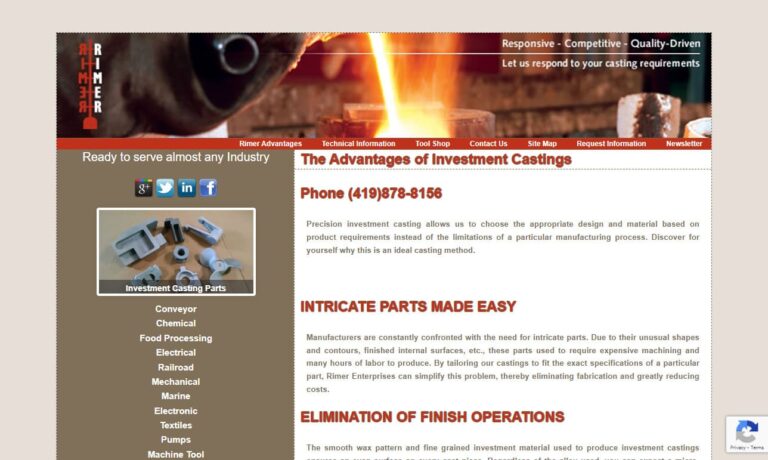
At Pennsylvania Precision Cast Parts, Inc., we excel in delivering high-quality investment castings tailored to meet the diverse needs of our clients. Our expertise spans a variety of industries, allowing us to produce castings that meet precise specifications and demanding standards.
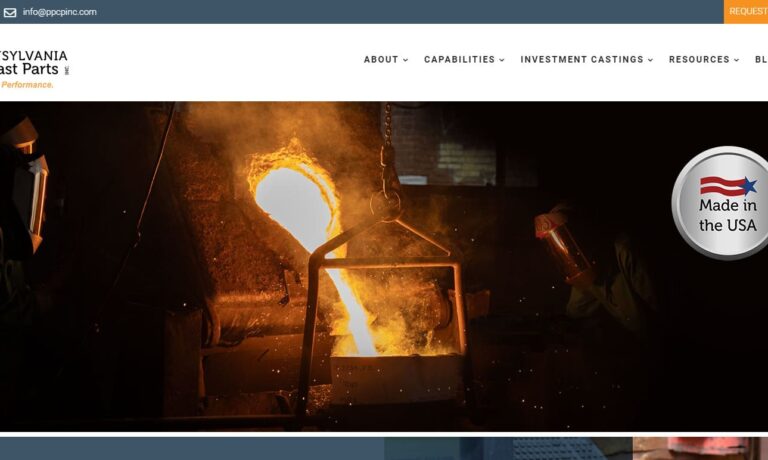
More Lost Wax Casting Companies

Metals Used In Lost Wax Casting
Stainless Steel
Stainless steel consists of alloys such as nickel and chromium, which determine the mechanical and grain properties of the casting. The combination of the alloys affects the endurance of heat and resistance to corrosion by the casting. However, stainless steel has a percentage of chromium, making it resistant to oxidation and corrosive conditions.

Steel
Steel is used for lost wax casting because it is available in various grades, is economical, and can be heat treated to adjust its ductility. Its application can be found in the medical, aerospace, agricultural, and firearm sectors.
Ductile Iron
Ductile iron castings have excellent corrosion resistance, surface hardness, strength-to-weight ratio, and elasticity modulus. Its main advantage is that it has multiple designs and is cost-effective.
Beryllium Copper
Beryllium copper makes castings that can be easily machined and have great ductility. After heat treatment, beryllium copper has excellent electrical and thermal conductivity.
Aluminum
Aluminum is considered an ideal metal for lost wax casting because of its resistance to corrosion and machinability. When aluminum is alloyed and heat treated with other metals, it develops excellent strength, like that of low carbon steel. Aluminum alloys have a fluid nature that caters to parts with thin walls.
Cobalt
Cobalt has a lustrous and hard finish that protects it and makes it resistant to oxidation. Cobalt is not affected by oxidation due to a passivating film that covers it. Since cobalt is found combined within nature, the smelting process is used to separate it from alloys. Cobalt is ideal for the process of lost wax casting because it is worn, corrosion, and heat resistant. It is used to make parts for the automotive industry, aerospace, and military use.
Brass
Brass's main defining properties are its polishing and finishing qualities. Yellow or red brass is used for lost wax casting for application and in door hardware and plumbing fixtures.
Bronze
The added elements of bronze enhance bronze's quality and performance. For example, aluminum and manganese can be added to make it corrosion-resistant.
Nickel
Nickel has great strength and resistance to heat, so nickel alloys are used in environments with extreme temperatures. Their use is found in chemical factories, aerospace, and marine environments.
The Lost Wax Casting Process

Rendering the Wax Pattern
The first step in the lost wax casting process is the formation of a three-dimensional rendering of what needs to be produced. Then, a die that is a negative relief to the part is created.
Producing the Wax Pattern
A wax pattern is formed from the semi-liquid wax poured into the die. Next, it is adjusted to make room for shrinkage. The process can be done several times depending on the parts that must be cast. The wax pattern is then connected, forming a sprue and later a cluster. These are known as a tree.
Shell Building and Dewaxing
The pattern is put in a ceramic slurry to build a shell. The shell creates a hard exterior coating surrounding the pattern. Next, the wax inside the ceramic shell must be removed by putting the ceramic shell in an oven.
Burnout and Casting
Burnout is a procedure carried out to remove residual moisture and wax. The casting process will involve pouring the molten metal into the ceramic mold.
After the casting, the cleaning and divesting procedures are followed by cutting the finished part, usually with a grinder. Finally, the part can be sandblasted before it undergoes surface treatments and is ready for use.

Applications of Lost Wax Casting

The industries lost wax casting are used in include:
- Aerospace
- Automotive
- Oil and gas
- Chemical
- Food
- Medical
Advantages of Lost Wax Casting
- Affordable tooling
- Accurate tolerances
- Great range of sizes
- Low production cost
Choosing the Right Lost Wax Casting Manufacturer
To make sure you have the most productive outcome when purchasing Lost Wax Casting from a Lost Wax Casting Supplier, it is important to compare at least 4 or 5 Companies using our Lost Wax Casting directory. Each Lost Wax Casting Manufacturer has a business profile page that highlights their areas of experience and capabilities and a contact form to directly communicate with the manufacturer for more information or request a quote. Review each Lost Wax Casting company website using our patented website previewer to get an idea of what each business specializes in, and then use our simple RFQ form to contact multiple Lost Wax Casting businesses with the same form.

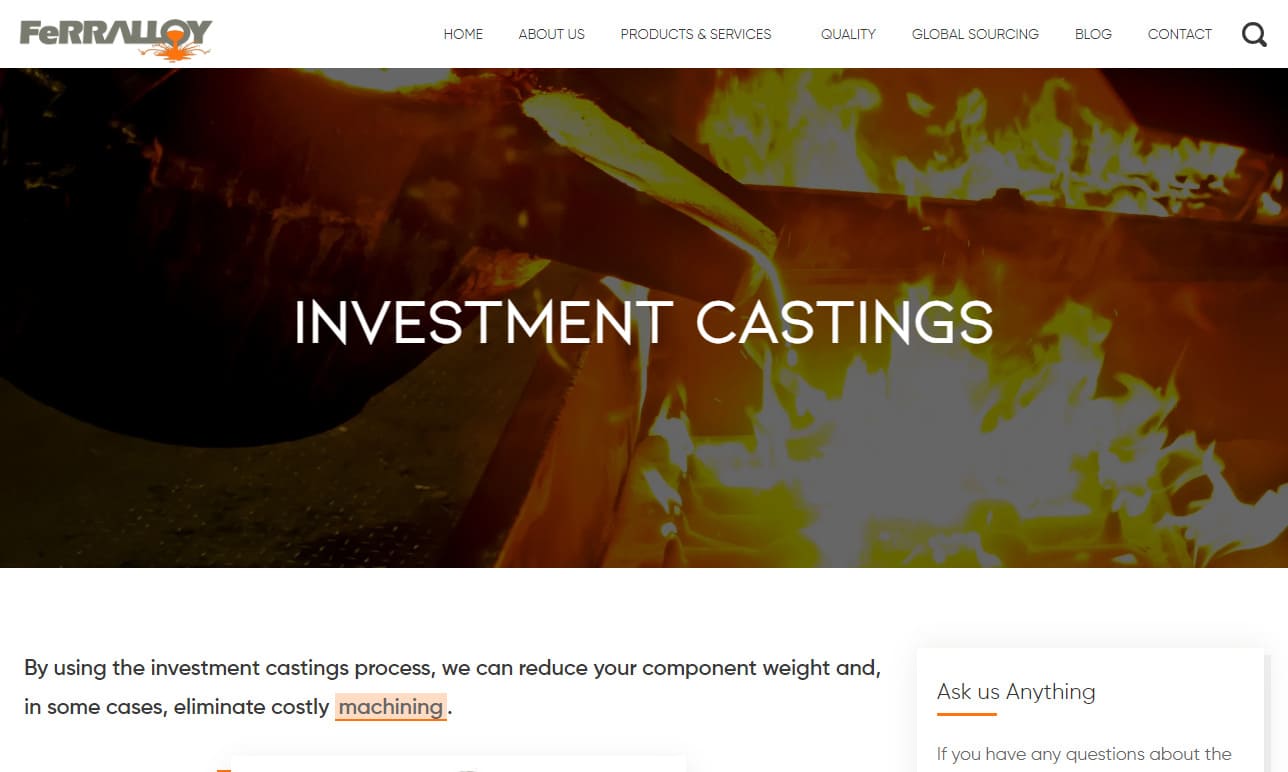


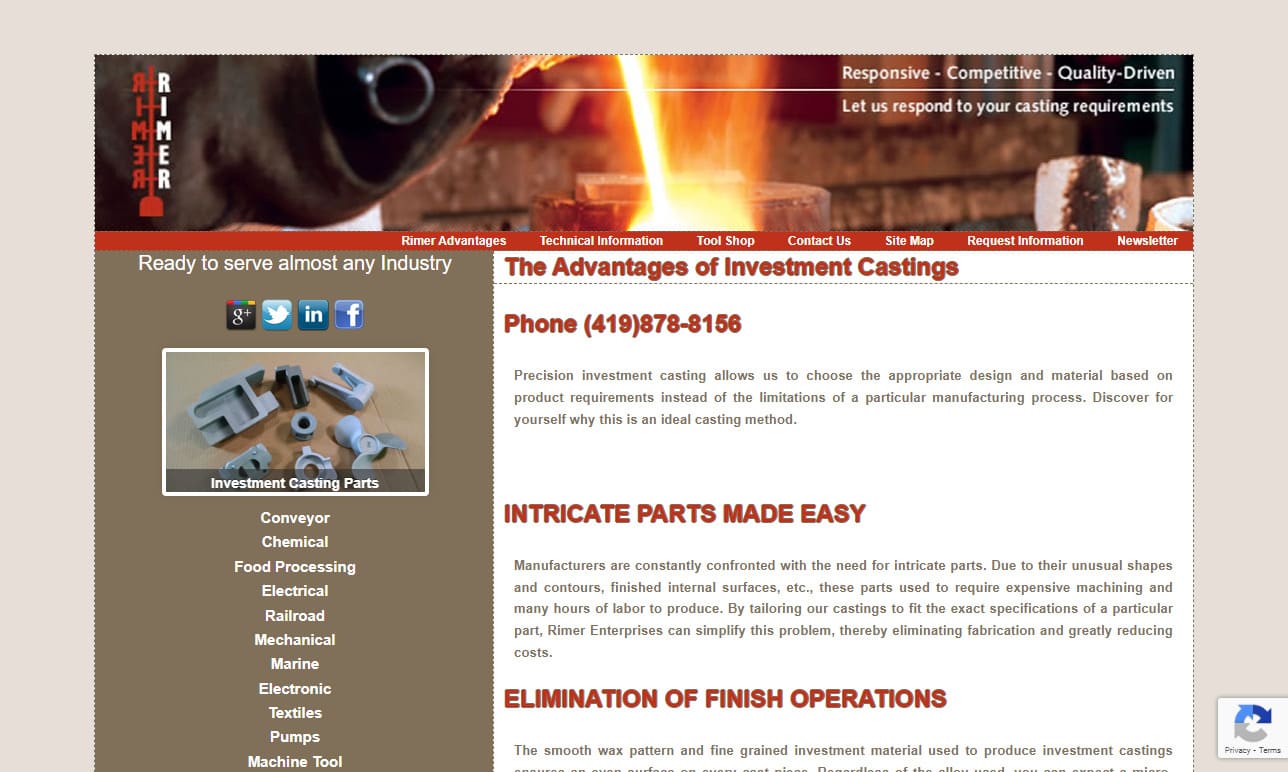
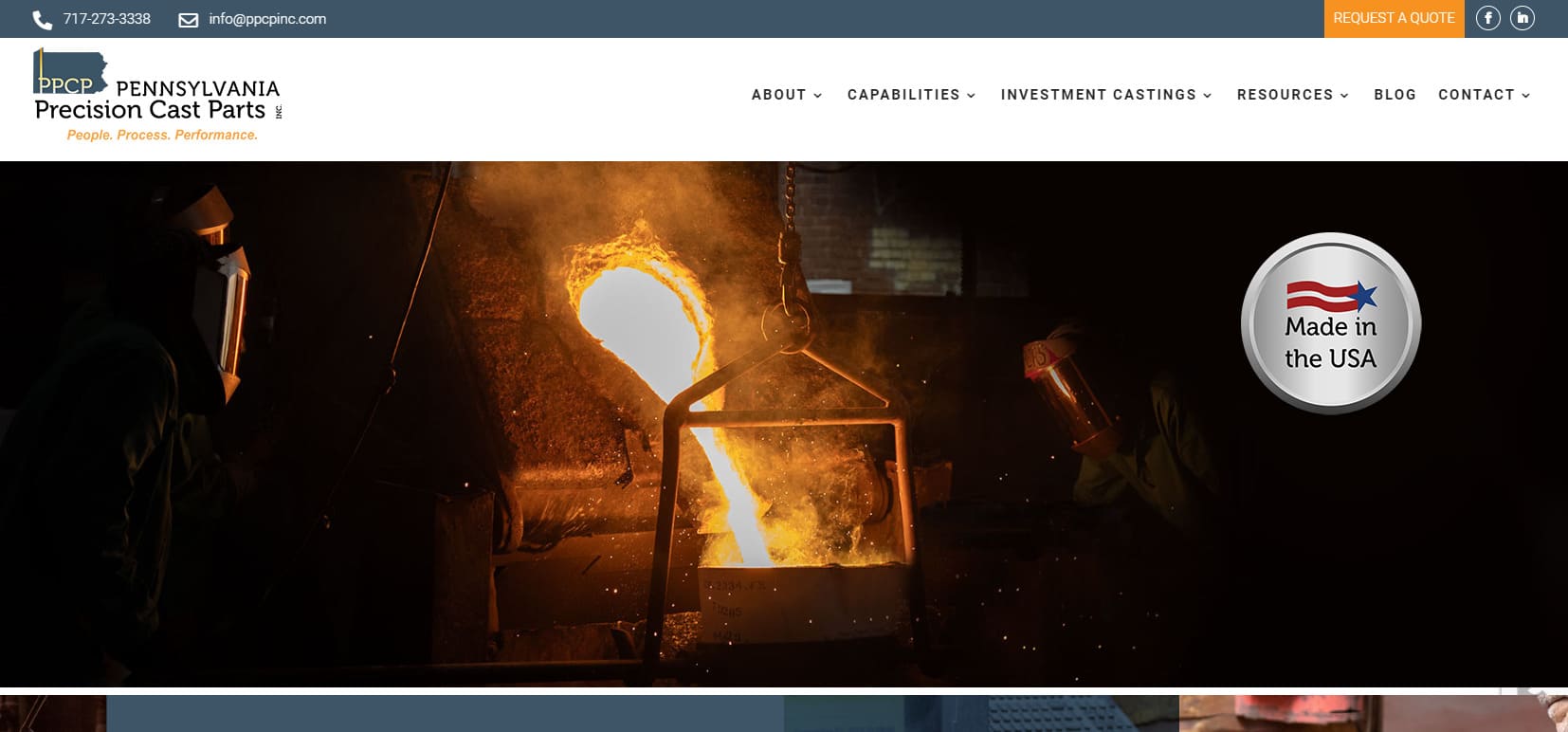
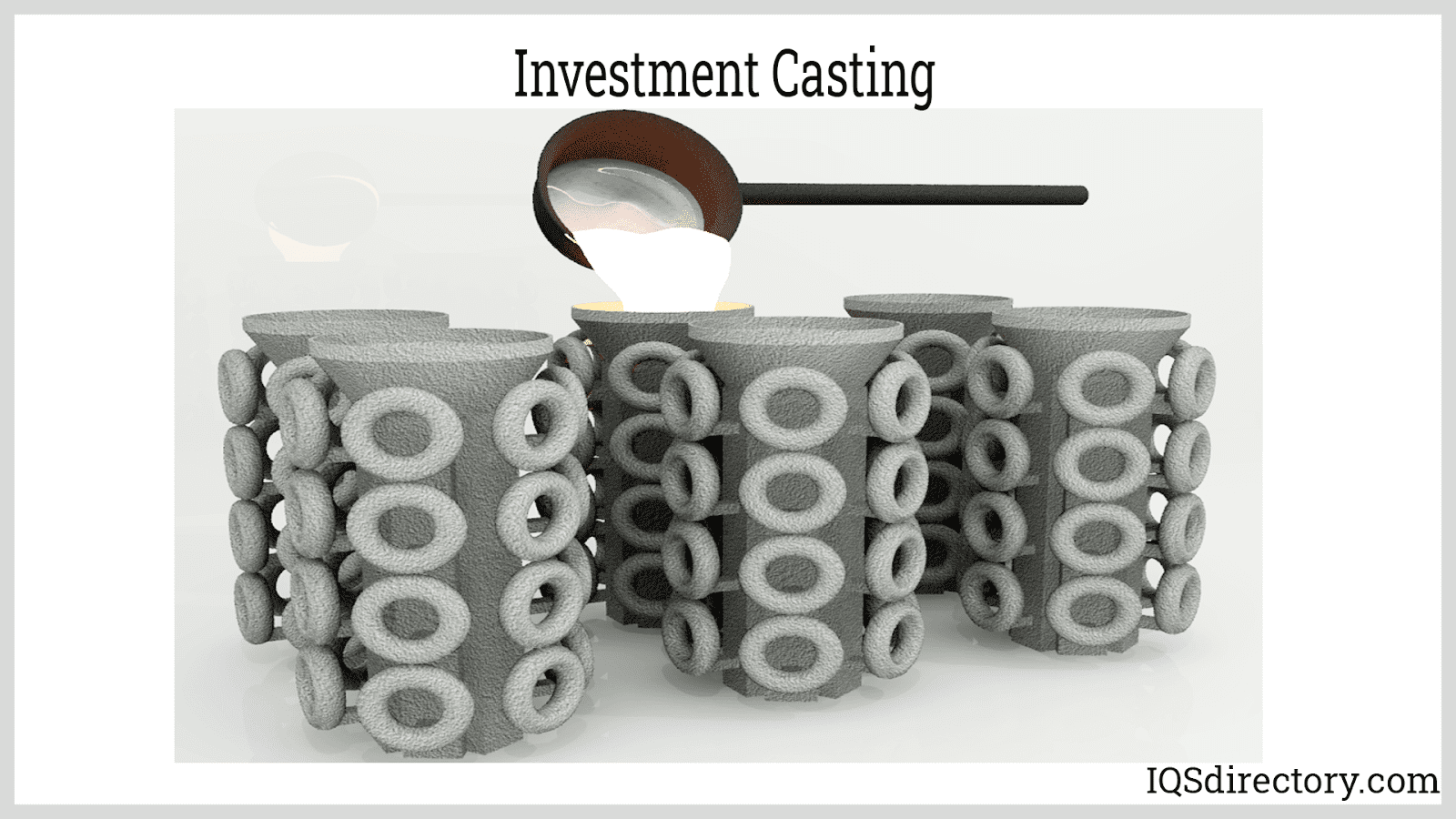
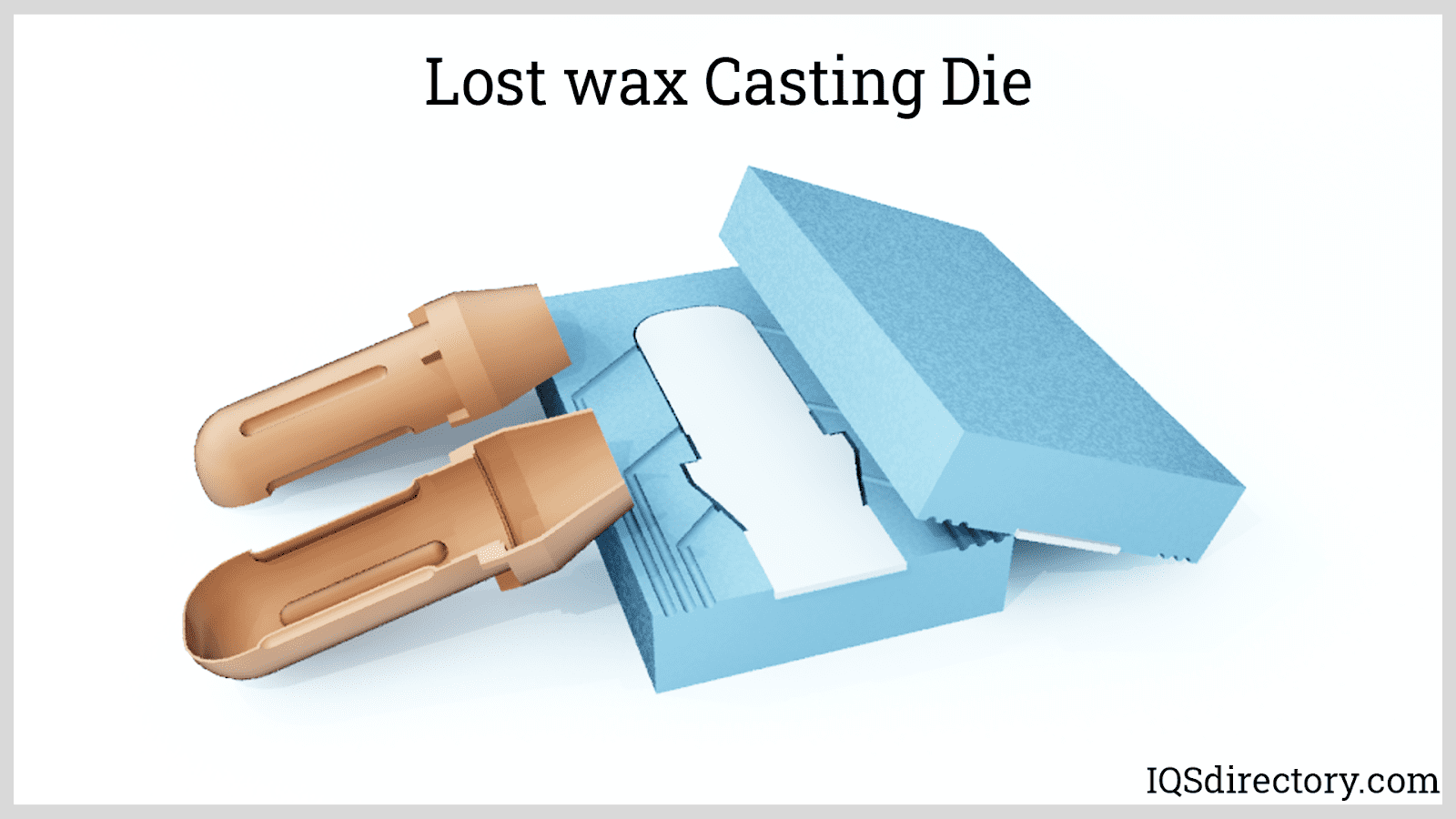
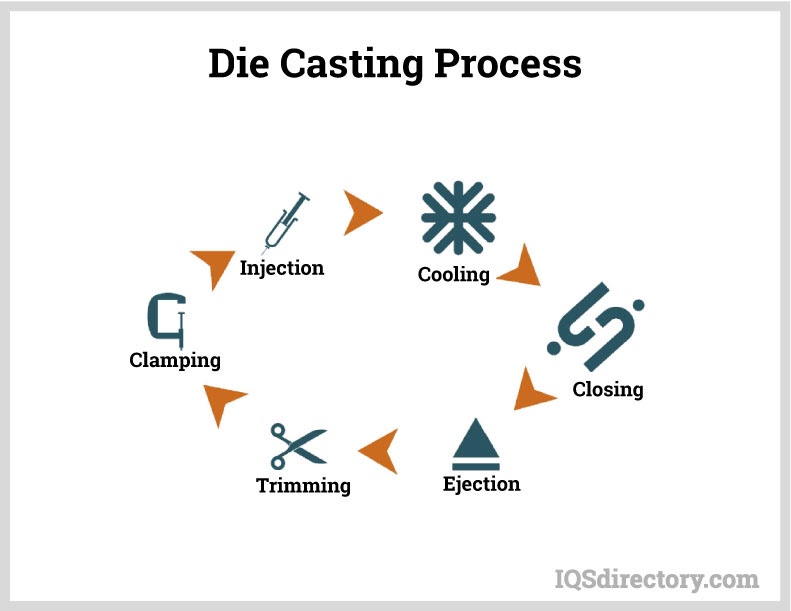

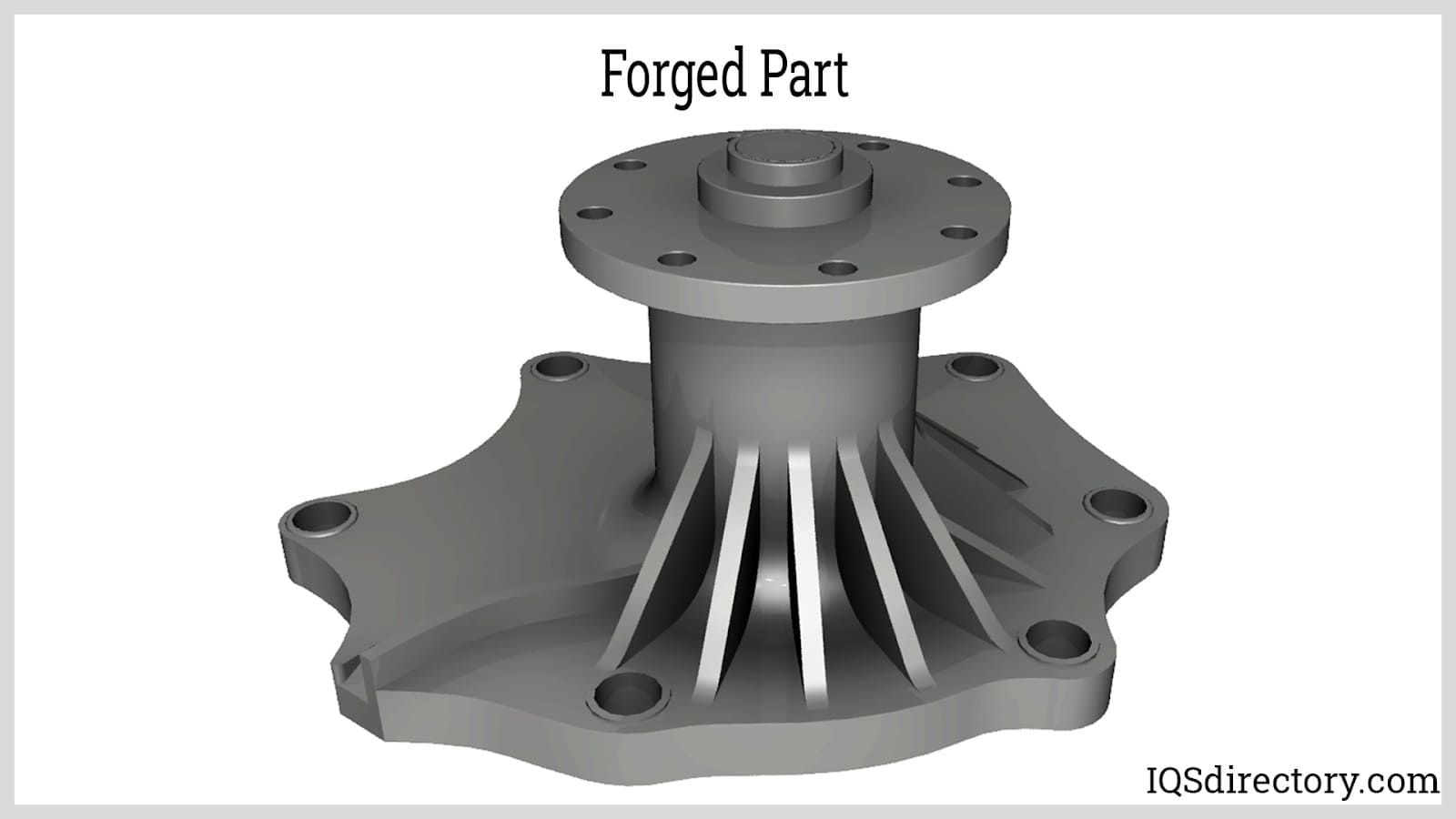
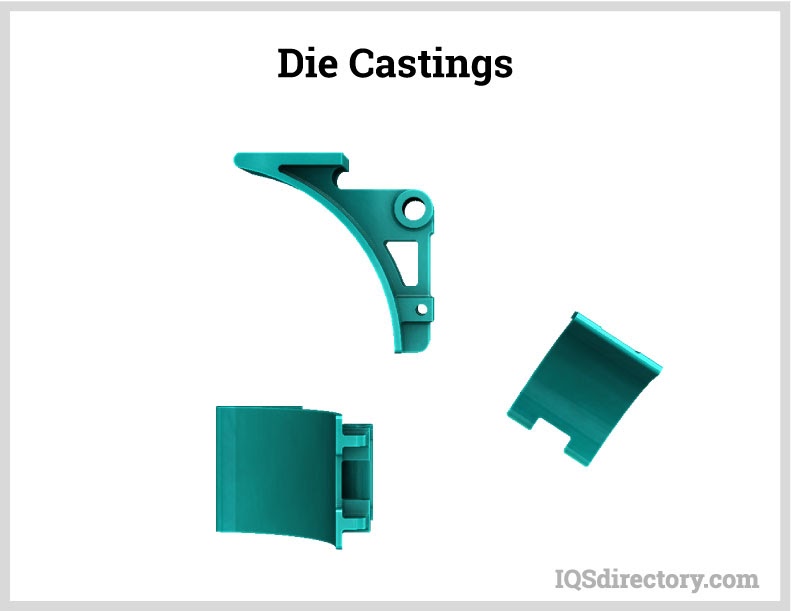
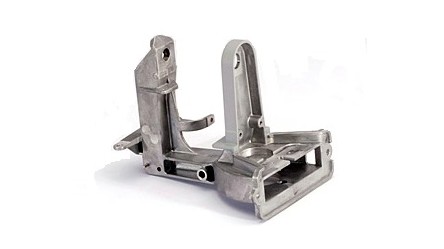 Die Castings
Die Castings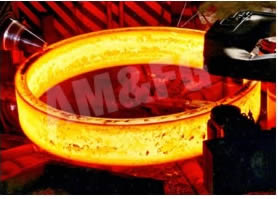 Forgings
Forgings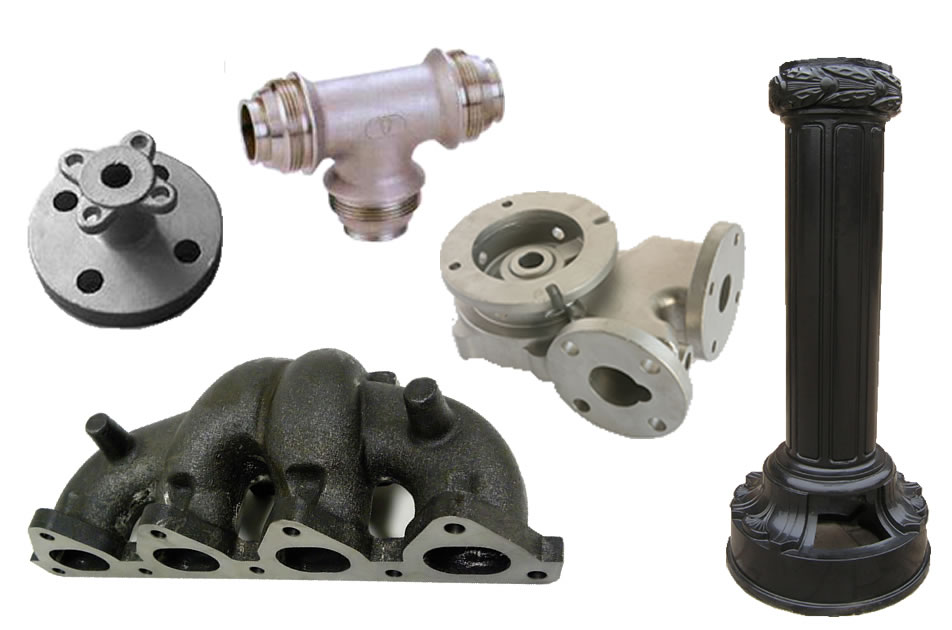 Grey Iron Castings
Grey Iron Castings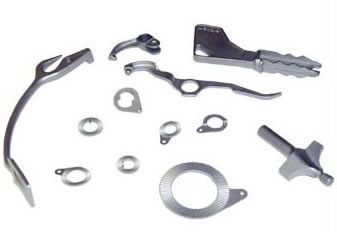 Investment Castings
Investment Castings Castings & Forgings
Castings & Forgings Bulk Material Handling
Bulk Material Handling Electrical & Electronic Components
Electrical & Electronic Components Flow Instrumentation
Flow Instrumentation Hardware
Hardware Material Handling Equipment
Material Handling Equipment Metal Cutting Services
Metal Cutting Services Metal Forming Services
Metal Forming Services Metal Suppliers
Metal Suppliers Motion Control Products
Motion Control Products Plant & Facility Equipment
Plant & Facility Equipment Plant & Facility Supplies
Plant & Facility Supplies Plastic Molding Processes
Plastic Molding Processes Pumps & Valves
Pumps & Valves Recycling Equipment
Recycling Equipment Rubber Products & Services
Rubber Products & Services